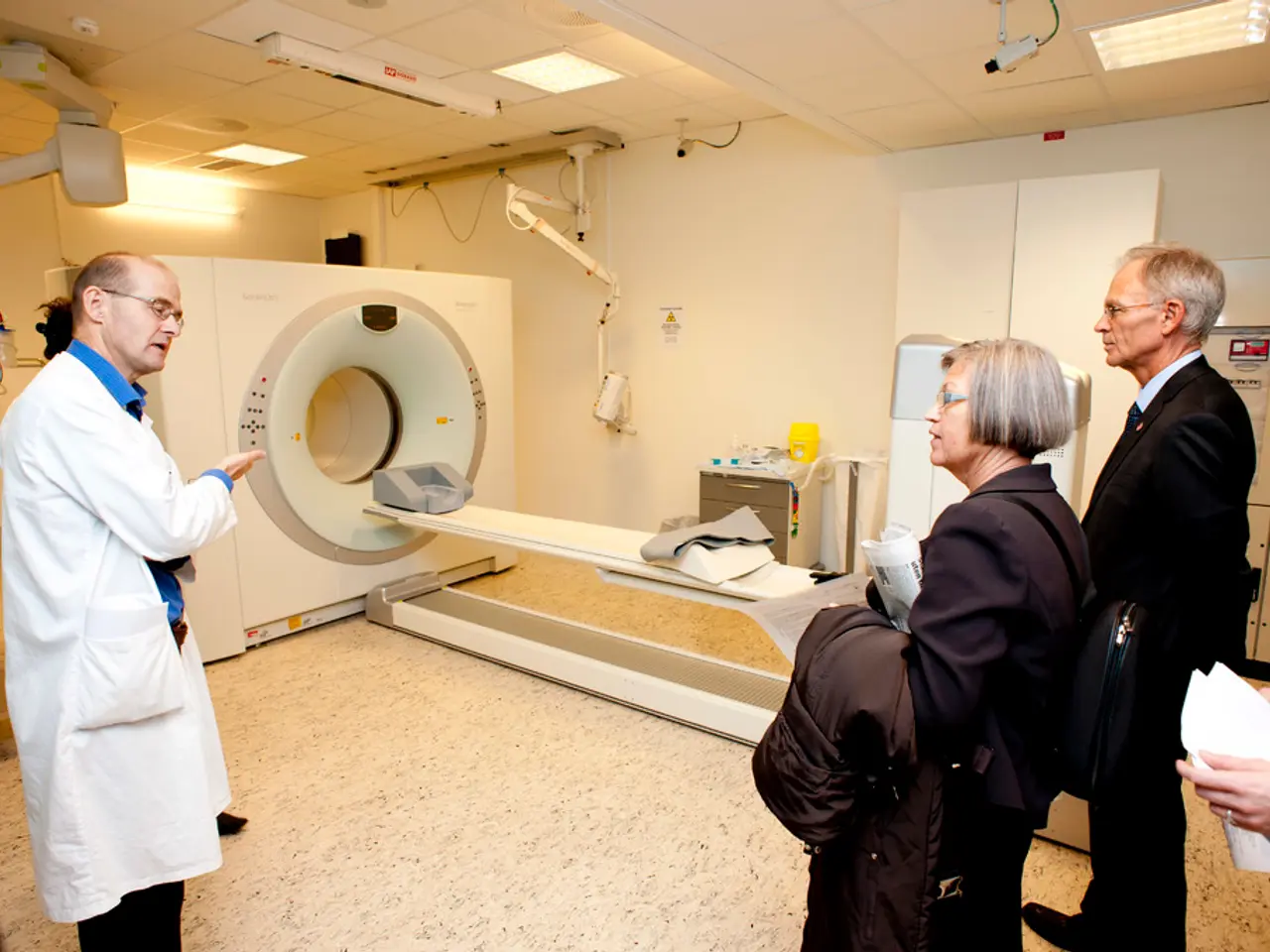Utilizing Artificial Intelligence for Colonoscopy Examinations: Is It Possible?
In the realm of medical advancements, the integration of artificial intelligence (AI) in colonoscopy procedures has shown promising results in the early detection of precancerous polyps and colorectal cancer. Studies have demonstrated that AI-assisted colonoscopies can increase adenoma detection rates (ADRs) by approximately 10% to 30% compared to conventional methods [1][2]. However, recent research suggests a potential "deskilling" effect among endoscopists, where continuous reliance on AI assistance may lead to a decrease in their ability to detect polyps without AI support [3][4].
AI-Assisted Detection Enhances Polyp Detection
The use of AI in colonoscopy significantly enhances polyp detection, reducing the likelihood of missed lesions [1]. This improved detection could lead to better prevention of colorectal cancer by removing precancerous adenomas.
The Deskilling Effect: A Concern for Colon Cancer Detection
Observational studies indicate a decline in ADRs for non-AI-assisted colonoscopies after endoscopists have used AI tools, suggesting a potential loss of skill over time [3][5]. If this deskilling effect persists, it could lead to a decrease in the effectiveness of colonoscopies performed without AI assistance, potentially increasing missed cancer cases and mortality rates [3][4].
Implications for Colon Cancer Incidence and Mortality
The integration of AI in colonoscopy could have mixed implications for colon cancer incidence and mortality. On one hand, enhanced detection and removal of precancerous adenomas could reduce the incidence of colorectal cancer [1][2]. On the other hand, the deskilling effect could counteract these benefits if clinicians rely too heavily on AI and lose proficiency in unassisted procedures [3][4].
Future Research Directions
Given the mixed outcomes, further studies are needed to understand how AI affects endoscopist skills and to develop strategies that prevent deskilling while maximizing the benefits of AI in colonoscopy [3][4]. This might involve training programs that balance AI use with hands-on skill development.
While AI holds great potential in the field of medical diagnostics, its effectiveness is dependent on the doctor using it. As research continues, it is essential to ensure that AI tools are integrated into routine care in a way that maximizes their benefits while minimizing potential risks.
Read also:
- Anticipated Arrival of Additional 150 Electric Buses by BVG Next Year
- Enhancing public transport: Novel advancements and refinements in Saudi Arabia's bus system
- Discussion: Strategies for enhancing the safety, speed, and efficiency of high-capacity 800V battery pack testing during a webinar
- Exploring the Spread of Electric Vehicles in Society








